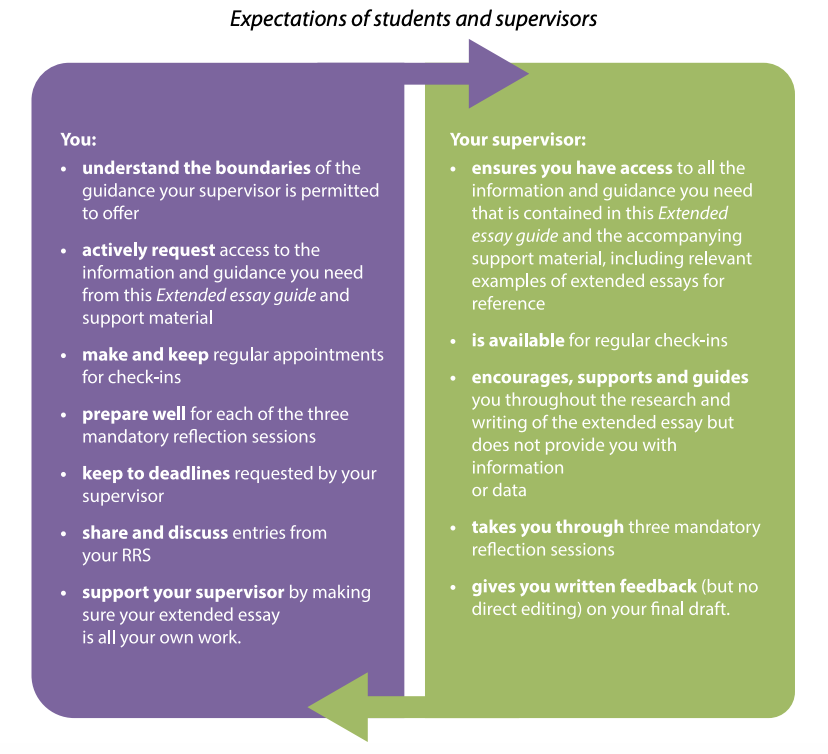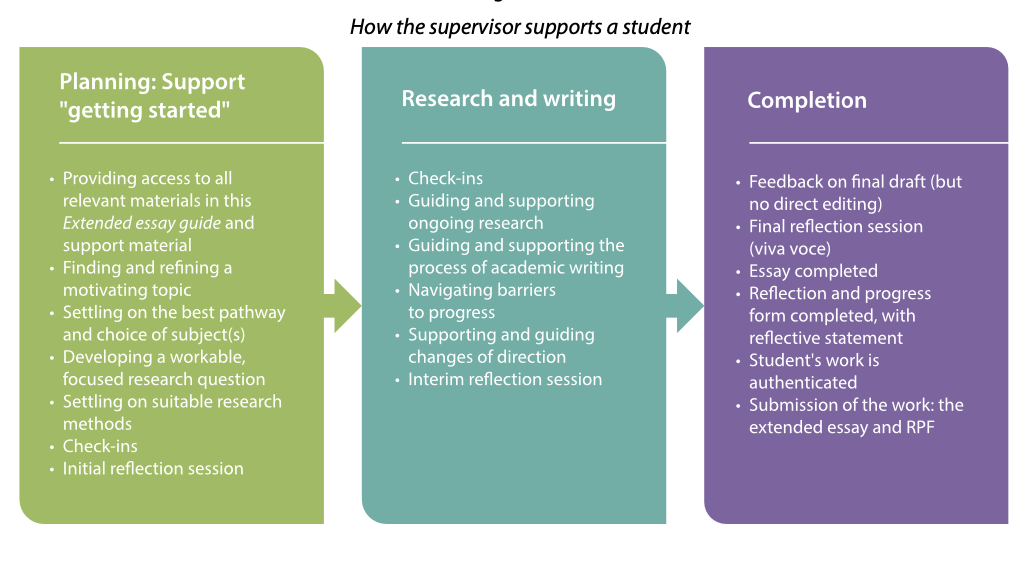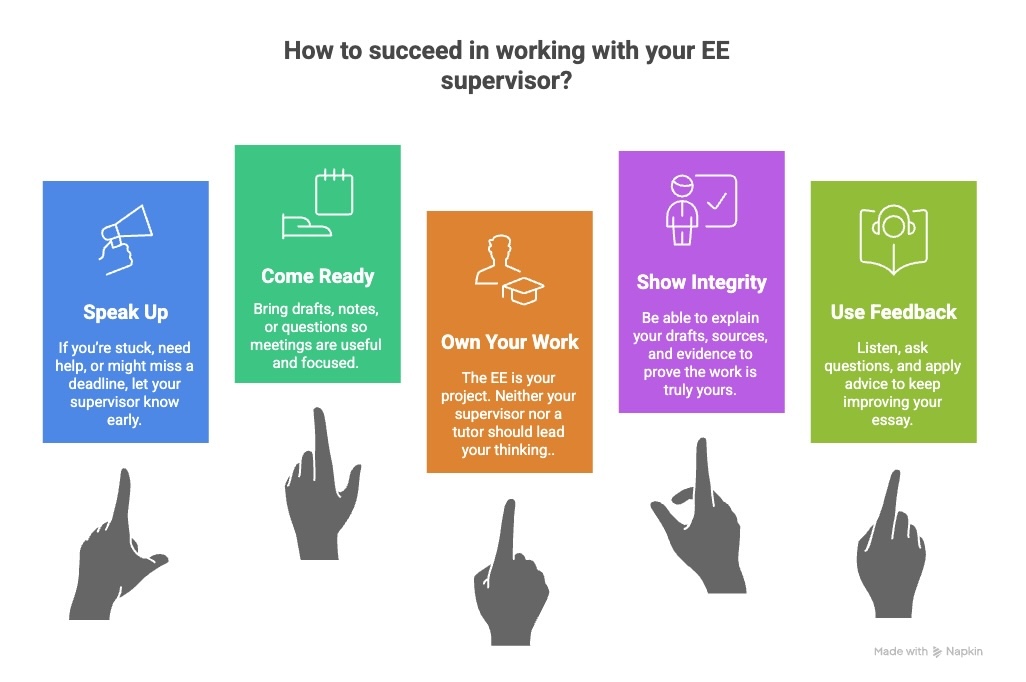
The Extended Essay is mainly a product of your own independent work, but you are supported by your supervisor. The supervisor–student relationship is central to the success of the Extended Essay. Whether built on a pre-existing connection or developed a new, it should be active, supportive, and collaborative, with the supervisor guiding the student through planning, research, writing, reflection sessions, and submission to ensure the essay reflects the student’s best efforts.

Source: EE Guide p. 83

Source: EE Guide p.104

An extended essay supervisor must be a school educator, matched to students based on availability and, ideally, subject expertise. Their role is to act as a guide and mentor—prompting and supporting rather than providing direct expertise—while the student remains responsible for research and writing. In special cases, schools may approve an external mentor at another institution, but the student must still have a school-based supervisor to oversee the process and conduct reflection sessions.
Tutors and education consultants may not be used to write or edit student work. The EE must be written independently with support from an assigned supervisor.
The supervisor is only permitted to comment in writing on the full draft of your extended essay once. You must do your own proofreading, carefully checking your extended essay draft to edit spelling and grammar, check formatting, and ensure you have not exceeded the 4,000-word limit.
The recommended approach is for the student to submit the draft ahead of a supervision session. This allows the supervisor to provide comments, which are then discussed in a one-on-one meeting. This discussion should focus on how the essay can be improved, but the supervisor should avoid extensive annotations or editing.
All Extended Essays must be authenticated by both the student and supervisor before submission to the IB eCoursework system. Supervisors must...